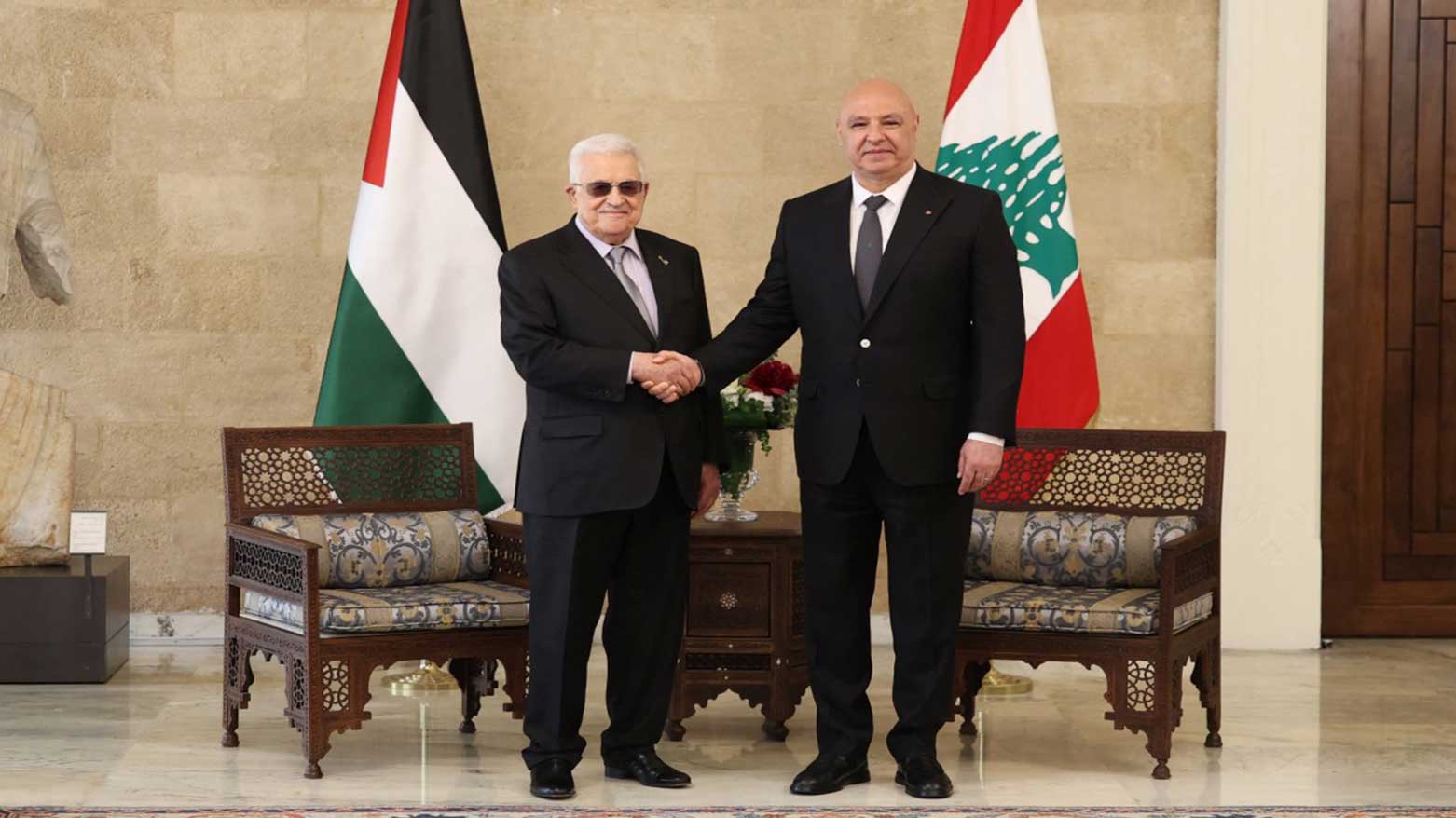Aoun and Abbas: All Arms Must Be Under Lebanese State Control
Palestinian refugee camps have long operated with a level of autonomy, often harboring armed factions beyond the oversight of Lebanese authorities.

ERBIL (Kurdistan24) — Lebanese President Joseph Aoun and Palestinian President Mahmoud Abbas declared on Wednesday that all weapons in Lebanon must fall under state control, signaling a unified position on disarming armed groups, particularly within Palestinian refugee camps in Lebanon.
According to a joint statement released by the Lebanese presidency and cited by Agence France-Presse (AFP), both leaders emphasized their shared view that "the era of weapons outside Lebanese state control has ended." The statement also reaffirmed their commitment to ensuring that arms are exclusively “in the hands of the Lebanese state.”
The announcement came during Abbas’s official visit to Beirut, where the two presidents held discussions focused on strengthening bilateral relations and addressing long-standing security concerns, especially the armed presence in the Palestinian refugee camps across Lebanon.
Palestinian refugee camps have long operated with a level of autonomy, often harboring armed factions beyond the oversight of Lebanese authorities. These enclaves have occasionally witnessed inter-factional violence and have been a source of tension in Lebanese internal affairs.
By jointly addressing the sensitive issue, Aoun and Abbas aim to bolster Lebanon’s sovereignty and reinforce internal stability. The move also reflects growing regional and international pressure to ensure that non-state actors, including Palestinian factions and Hezbollah, operate within the bounds of national institutions.
While the statement did not detail a timeline or enforcement mechanism for disarmament, it marks a symbolic and potentially pivotal step in the complex process of integrating all armed forces under state authority.
The visit and joint declaration follow recent violent clashes in Ain al-Hilweh, the largest Palestinian camp in Lebanon, where confrontations between rival Palestinian groups left several dead and dozens wounded, drawing public outcry and concern from Lebanese security agencies.
The effectiveness of this agreement will depend on political will, regional cooperation, and the capacity of the Lebanese state to enforce such a policy.
No official response has yet been made by armed Palestinian factions regarding the joint statement.
